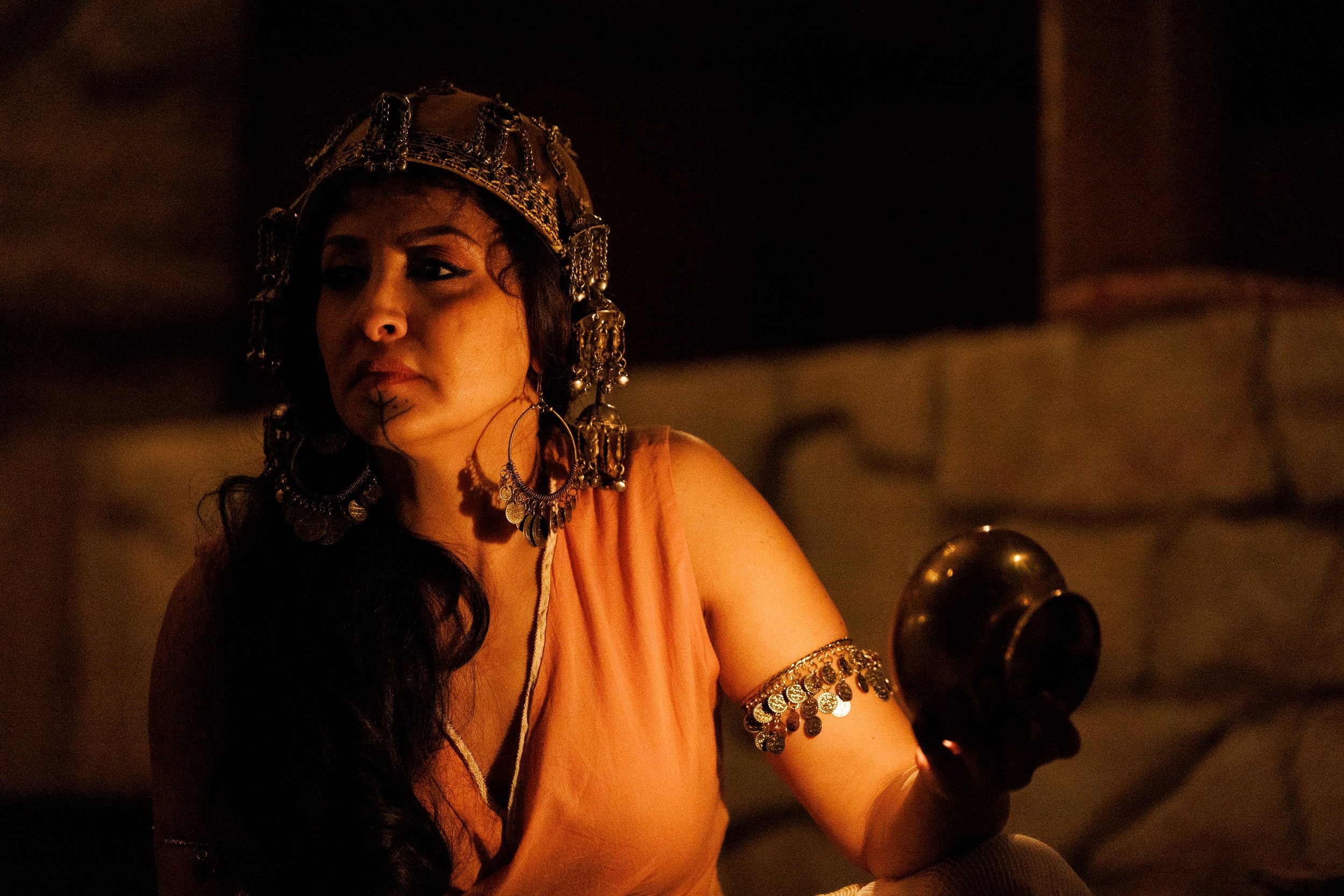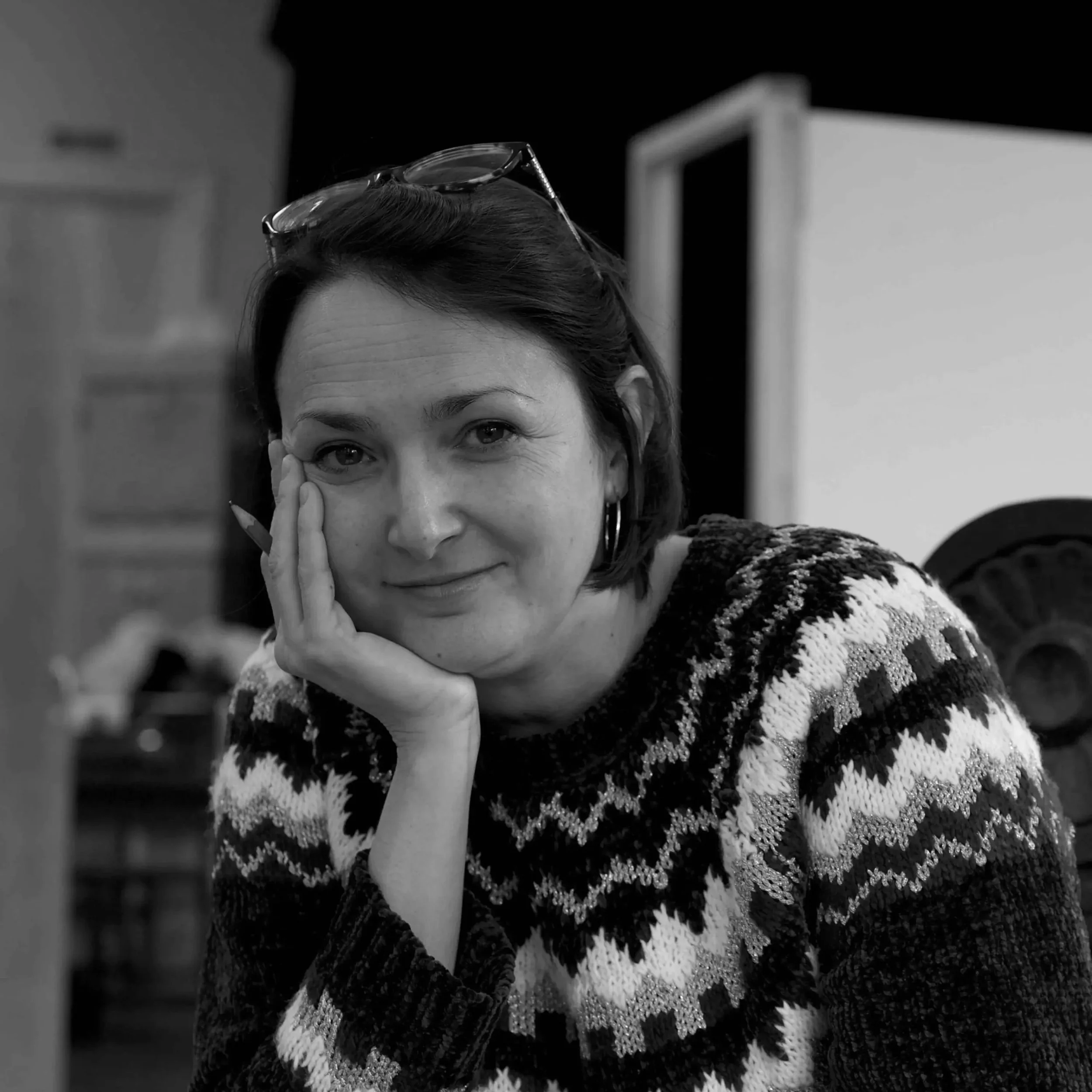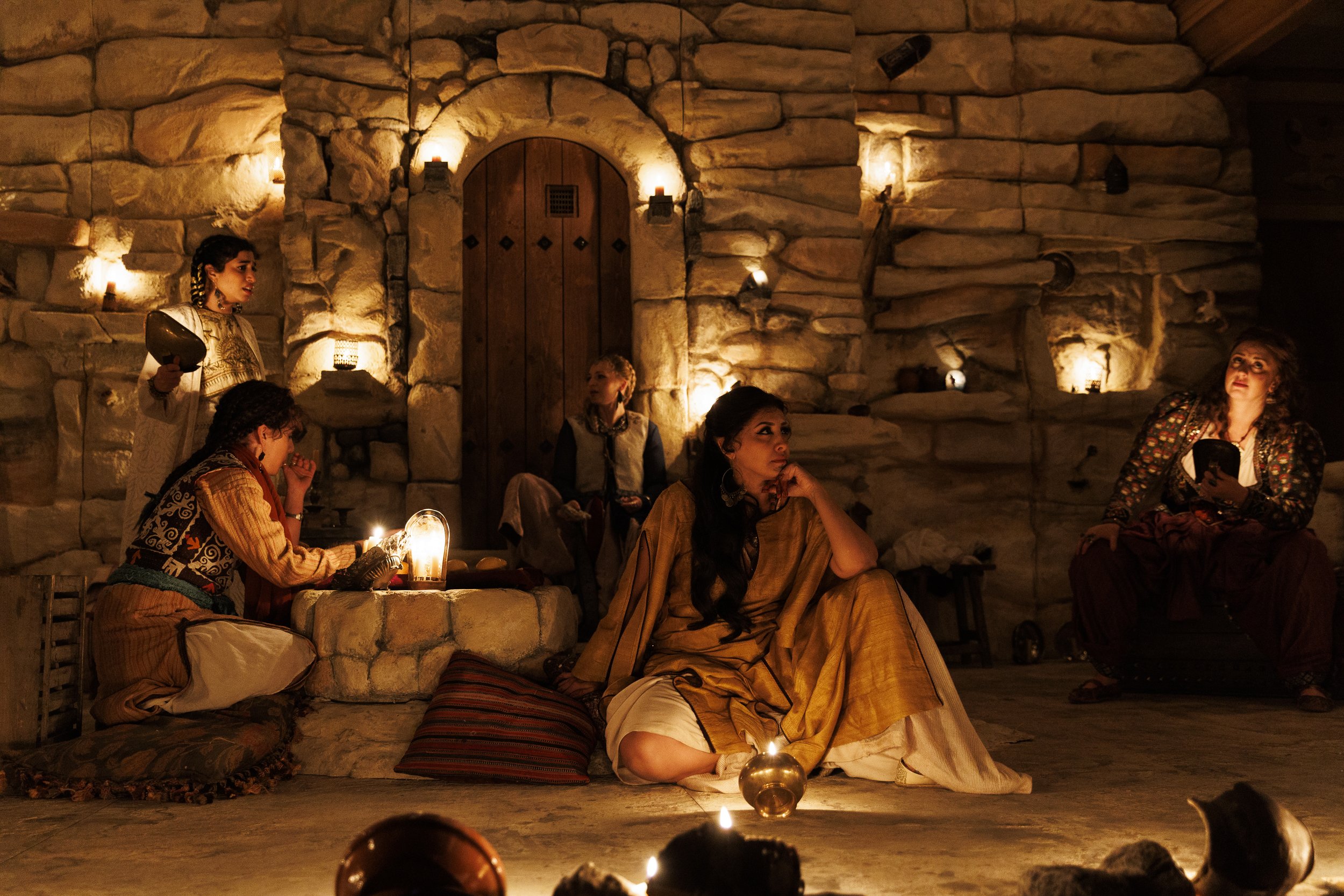Hannah Khalil’s demonstration of the uniquely feminine power of oral storytelling
Hakawatis, copyright © Ellie Kurttz.
Words by Zeina Saleh, interview by Dalia Al-Dujaili.
"It’s our turn, khalas. It's that simple,” says Palestinian-Irish playwright Hannah Khalil here to reclaim the Arab female perspective. Hakawatis: Women of the Arabian Nights is a play written for women by women directed by Pooja Ghai, screaming to those in the back that yes, we are powerful, yes, we enjoy sex, yes, we are feisty, and yes, we are Arab. Taken from the Arabic term ‘hekaye’ meaning a story, and ‘haki’ meaning to talk, Hawkawatis presents an all-female perspective on the ancient tale of One Thousand and One Nights. The play tells the tale of a tyrant’s rage following his wife's infidelity by wedding, bedding and beheading a new bride every day.
Hannah found herself immersed in theatre from a young age, from watching musicals and receiving the standard theatre education at her school, where she was mainly taught the works of “dead white guys”, as she describes it. What started out as ambitions to become an actress, became a constant state of waiting. The quickest fix to letting out her frustrations was writing. Hannah’s interest in writing was ignited due to a date that she did not want to go on; she was met with the phrase by a fellow student who had told her that “she was going to die alone”. Khalil took the liberty to address such a phrase in a short play that eventually earned her the Westminster prize, where her play came to life and her chronicles as a writer begin. “From there, I was continually writing to figure stuff out, understand the world, and get my frustrations on the page,” says Hannah.
Hannah Khalil, copyright © Leighton Moody
Having spent most of her childhood between Dubai and globetrotting from place to place before ending up in the UK, Hannah offers a perspective many can relate to, an identity crisis that stems from trying to navigate your way around connecting with your homeland whilst being in foreign spaces. But also a sense of comfort in knowing that new perspectives can arise from the plight of being creative in the diaspora. Hannah references the ever so relatable essay by Salman Rushdie, Imaginary Homelands, “In a way it's like being in two worlds. You have the privilege of a perspective that's slightly different and can write about things in a way that people who are completely embedded within that society may not entirely be able to.”
For Hannah, writing this play meant to rewrite a narrative that has been hauntingly set in place for Arab women, a boring, outdated, and frankly inaccurate one at that – she is setting the record straight with a confrontational empowering tale – “I'm so tired of seeing Arab women being portrayed as the stay at home, meek, three-feet-behind character, that's such horse shit. We've had so much of that, it's time to wrestle that away,” says Hannah, whose previous works have tackled with the same themes, such as A Museum in Baghdad and her feminist rewriting of Henry VIII.
When she moved to the UK, “what struck most was how people perceived Arabs, Palestinans in particular”, but when asked whether she feels like it's her duty to teach people about her Palestinian heritage and history, Hannah confidently states that, “I don't feel like it is my job to teach people stuff; I am offering a different perspective, surprising them, and making them look at their own biases''.” And, “there’s a thing called Google.”
This play acts as a beacon for all the creatives in the diaspora navigating their way around expressing their identity through their work. Hannah is shifting perspectives and unapologetically dismissing every belittling narrative that has been set in place for Arab women. She beautifully expresses, “In the Hakawatis rehearsal room, it's just joyous because it's all these mixed heritage Arab women who are just fucking brilliant. It feels like home.” Nonetheless, she gives hope to creatives in the diaspora who all aim to say and feel such a word; home.
Hakawatis, copyright © Ellie Kurttz.


